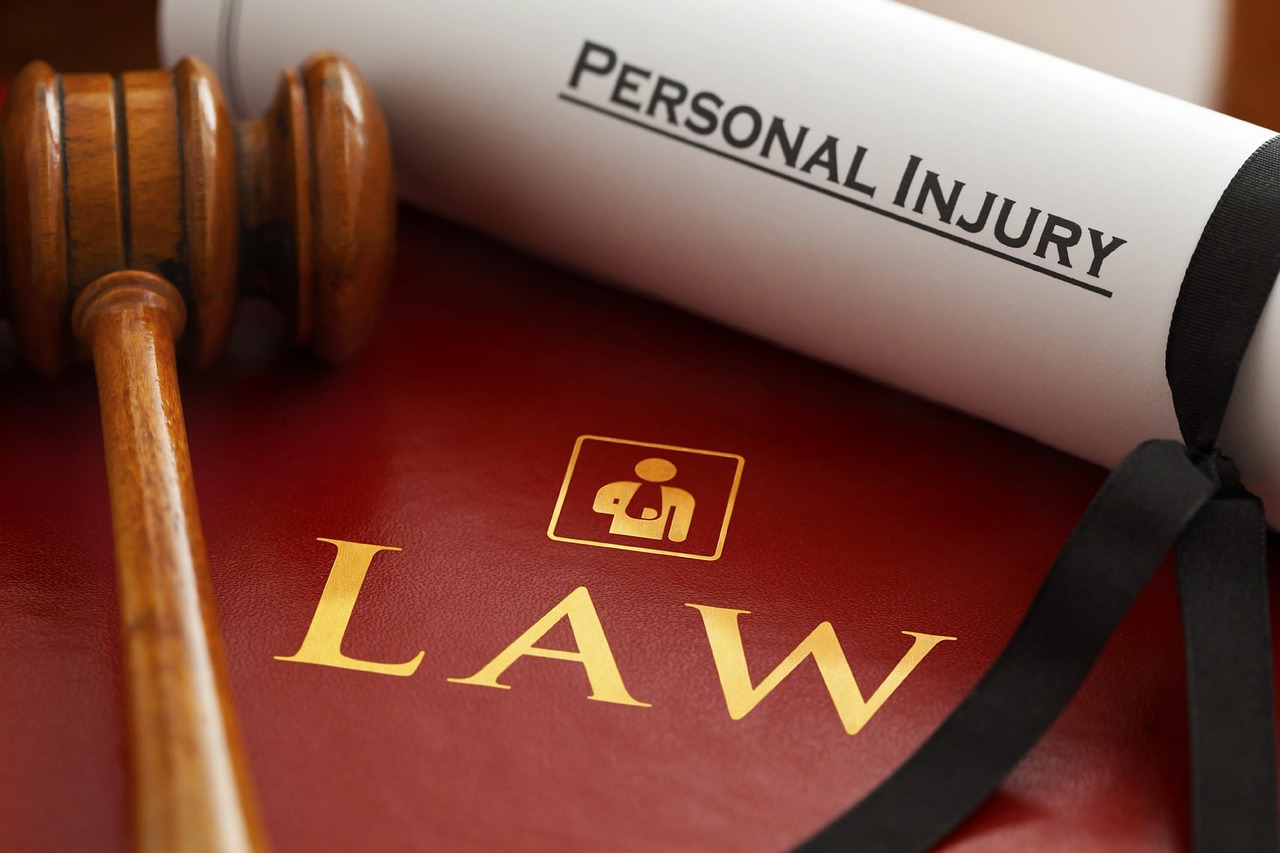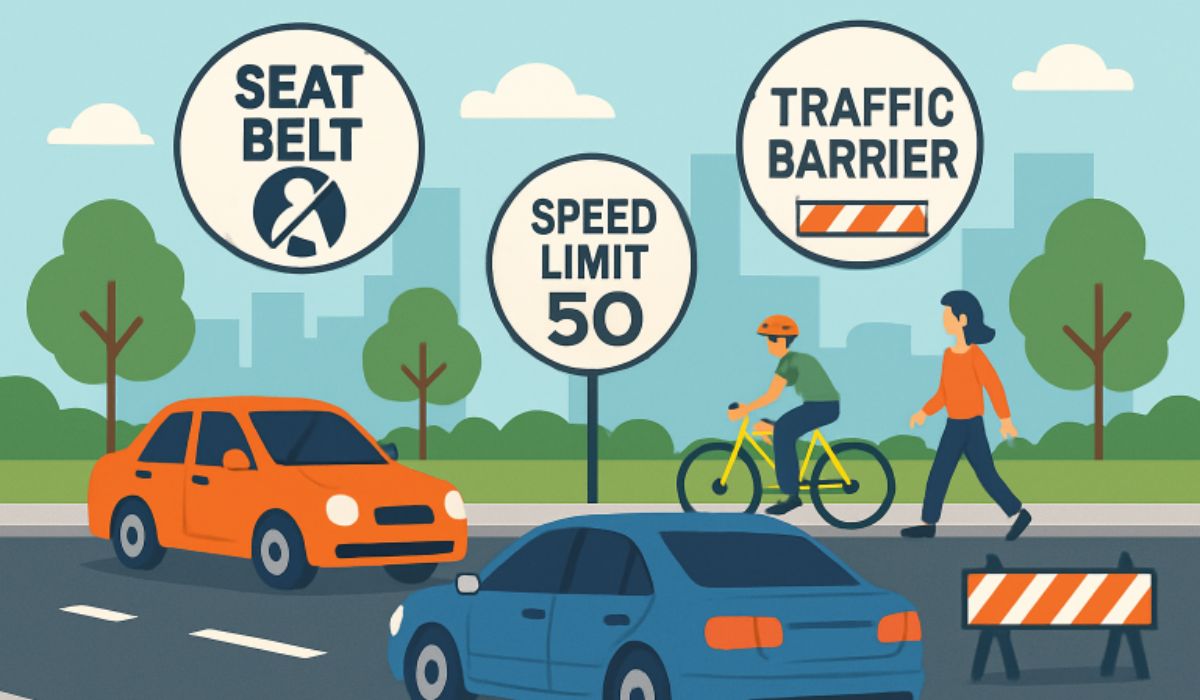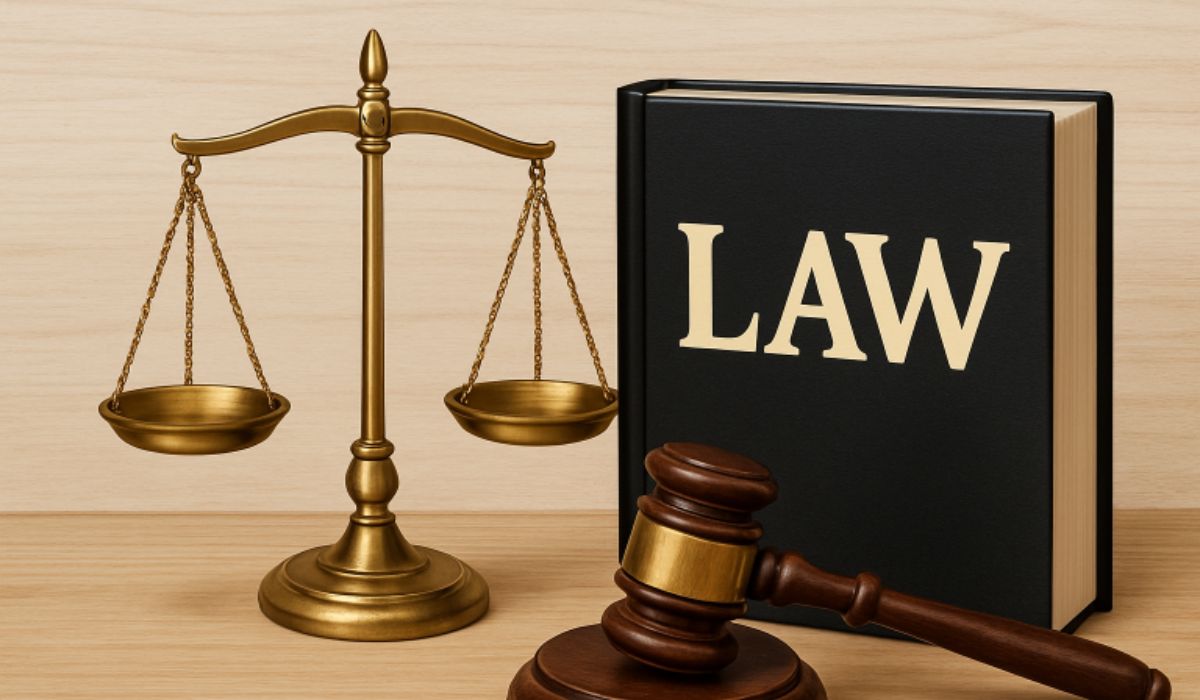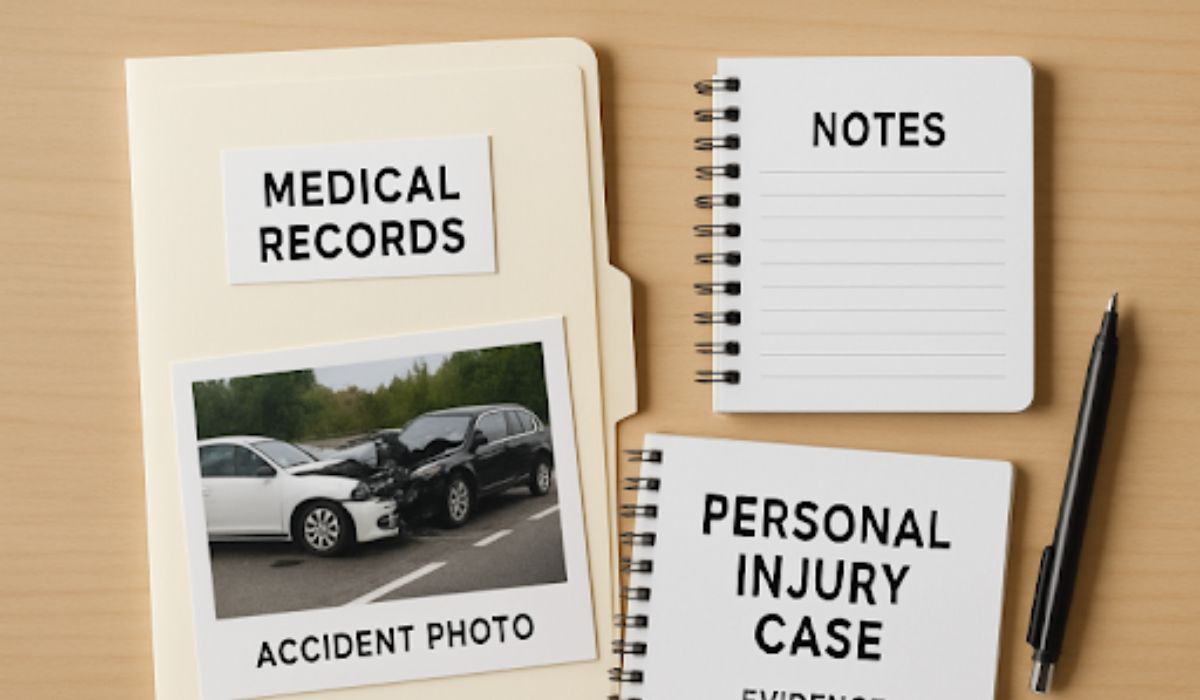Law
How to Handle Personal Injury Cases Effectively

Key Takeaways
- Recognize the significance of recording all aspects of the event.
- Learn how to communicate with insurance companies effectively.
- Discover the crucial role of legal representation in navigating personal injury claims.
The Basics of Personal Injury Cases
Cases of personal injury can be daunting and anxiety-inducing. They typically arise when an individual incurs harm due to another party’s negligence or deliberate actions. Typical scenarios include vehicular accidents, workplace injuries, and slips and falls in public spaces. Cases of personal injury in Lincoln, NE, can be daunting and anxiety-inducing. Engaging the help of a personal injury lawyer in Lincoln NE, can be immensely helpful in navigating the intricacies of the legal processes associated with these incidents.
The foundation of a robust personal injury case is immediate and strategic action. It’s essential to initiate evidence collection as soon as possible and seek necessary medical care without delay. The legal aspects also require attention to ensure all procedures and protocols are adhered to correctly, establishing a solid basis for the case.
Why Documenting Every Detail Matters
Envision attempting to complete a jigsaw puzzle missing several pieces; that is what managing a personal injury case resembles without comprehensive documentation. Meticulous record-keeping serves as the cornerstone of establishing the facts surrounding an incident. Such documentation may consist of but is not restricted to, medical records outlining injuries, images depicting the location of the injury, and testimonies from witnesses who can verify the events in question.
Documented evidence not only supports the injured party’s narrative but also assists in accurately evaluating the extent of the damages suffered. This evaluative documentation becomes imperative during negotiations or proceedings, helping to substantiate claims against the alleged negligent party. In a personal injury lawsuit, evidence is a key determinant, underscoring the value of comprehensive record-keeping.
Navigating Insurance Companies
Insurance companies are sophisticated in their ability to minimize payouts. To address this challenge, individuals must be prepared and informed about effectively navigating interactions with these entities. It is crucial to be concise and precise with the information provided to insurers. Maintaining a meticulous record of all communications is also a protective measure.
Negotiation pitfalls can be shared, especially when dealing with intricate insurance terms and complex legal clauses. Educating oneself about the potential tactics insurance firms use—such as low initial settlement offers—equips individuals with a strategic advantage. Remember, it’s within the claimant’s rights to challenge offers and seek a fair assessment.
The Importance of Legal Representation
Securing the expertise of an experienced attorney is invaluable in any personal injury case. Legal professionals offer more than just a representation; they comprehensively understand the legal landscape. Their role is essential in clarifying the intricacies of legal terms and safeguarding the rights and interests of the injured party during the legal process.
An attorney can accurately evaluate the factors influencing a claim’s value, spot potential pitfalls in negotiation with insurers, and effectively present evidence. By having legal representation, the claimant can focus on recovery and leave the intricate legal processes to the professionals adept at navigating these complexities.
Common Challenges in Personal Injury Cases
Personal injury cases often present unique challenges. These hurdles—identifying the liable parties, establishing negligence, or dealing with counterclaims—require strategic and purposeful action. The Guardian stresses the importance of understanding these common issues and providing guidance that can be crucial in managing a case effectively.
One of the fundamental challenges is gathering sufficient evidence, which needs to be credible and convincing. Witness statements might sometimes conflict, requiring keen attention to detail and strategic evidence presentation to resolve such conflicts. Anticipating these challenges makes preparing and mitigating their impact easier, enhancing the overall chances of a successful outcome.
Steps to Take Following an Injury
- Seek immediate medical attention to accurately determine the severity of all injuries, including those that might initially appear trivial. It ensures health and safety and provides medical records supporting the claim.
- Collect comprehensive contact information from any witnesses present during the incident. Their accounts could provide independent perspectives crucial to the case.
- Document all damages systematically with photographs and detailed notes to create a clear record of the incident’s aftermath.
- Consult a legal professional to evaluate the case, identifying strengths and potential challenges thoroughly.
Understanding Compensation Types
In personal injury cases, understanding the variety and depth of compensation available is crucial for the injured party to ensure full recovery. Compensation typically includes medical expenses, both immediate and long-term. It may also encompass lost earnings due to inability to work and non-financial damages such as pain, suffering, or emotional turmoil. Each case is unique, making it essential to fully understand all potential claims to ensure adequate restitution for losses incurred.
Conclusion
Successfully handling a personal injury case necessitates a comprehensive strategy focused on detailed documentation, tactical communication with insurers, and expert legal advice. By deploying these methods, individuals can adeptly handle the nuanced challenges inherent to personal injury claims, facilitating fair compensation for their injuries and associated difficulties.
Law
How Road Safety Measures Can Reduce Personal Injury Risks

Ensuring road safety is critical in reducing personal injury risks and making communities safer for everyone. Road traffic accidents are a leading cause of preventable injuries and deaths worldwide. By implementing data-driven safety measures and leveraging support from key organizations like the Ward Law Group, we can significantly reduce the rates of accidents and harm on our roads. Whether you are a driver, cyclist, pedestrian, or policymaker, understanding these strategies is essential for building a safer environment.
Governments, businesses, and individuals all play roles in this collective effort. Enacting sound legislation, improving infrastructure, and introducing technology-driven solutions have proven to be cornerstones in mitigating accident severity and occurrence. Each safety intervention—from seat belt enforcement to innovative warning systems—serves a distinct, crucial purpose in protecting lives on the move.
The ripple effects of robust road safety policies extend beyond direct injury reduction. Enhanced road safety boosts overall community well-being, minimizes healthcare costs, and fosters an environment where people can travel with greater confidence and security.
With commitments and innovations driving change, ongoing vigilance and collaboration remain the cornerstones of progress. Exploring the importance of legislation, speed management, traffic barriers, red light technology, corporate leadership, and the Vision Zero methodology demonstrates how comprehensive efforts deliver real-world results.
Importance of Seat Belt Legislation
Seat belt legislation stands as one of the most effective ways to reduce traffic fatalities. Data from the National Highway Traffic Safety Administration (NHTSA) show that seatbelts saved nearly 15,000 lives in the U.S. in a single year. For occupants involved in car crashes, using a seatbelt can reduce the risk of fatal injury by 45% and moderate to severe injury by 50%. As such, strict seat belt laws and enforcement campaigns play a pivotal role in improving road safety outcomes.
Consistent public education campaigns, paired with high-visibility law enforcement, have led to increased compliance and awareness about seatbelt usage. States with primary seat belt laws—meaning officers can ticket motorists solely for not wearing a seatbelt—demonstrate higher usage rates and lower injury statistics than states with secondary laws or no seatbelt requirements.
Impact of Reducing Speed Limits
Speeding increases both the likelihood and severity of crashes. Reducing speed limits, especially in urban and residential areas, offers one of the most direct routes to lowering injury rates. For example, the Chilean capital of Santiago experienced a notable decrease in work-related transportation incidents after reducing urban speed limits. Lower speeds translate to shorter stopping distances, giving both drivers and pedestrians more time to react and directly curbing the occurrence and severity of collisions.
Data from the Centers for Disease Control and Prevention (CDC) continually highlights excessive speed as a significant risk factor for road fatalities worldwide. Implementing managed speed zones near schools and busy intersections further safeguards vulnerable road users, such as children and older adults.
READ ALSO: How to Handle Personal Injury Cases Effectively
Role of Traffic Barriers
Physical traffic barriers, including guardrails, crash cushions, and median dividers, are integral in keeping vehicles on the roadway and shielding them from hazardous obstacles. These barriers are especially vital near high-speed roads or dangerous curves, as well as in areas with high foot traffic, such as school zones and pedestrian crossings. By physically separating opposing lanes of traffic or demarcating restricted areas, barriers reduce the incidence of high-impact head-on collisions and provide essential protection for both motorists and non-motorists.
Studies in road design reveal that judicious placement and maintenance of barriers can help reduce collision forces, minimize the severity of crashes, and ultimately save lives. Municipalities that invest in modern traffic barrier systems often experience decreases in both the number and severity of vehicular accidents.
Effectiveness of Red Light Cameras
Intersection-related accidents caused by red light violations account for a significant portion of serious urban injuries. Red light camera enforcement has been proven to mitigate these risks by deterring repeat offenders. Research published by the Insurance Institute for Highway Safety (IIHS) indicates that automated red light enforcement reduces injury crashes by approximately 25% at controlled intersections. However, it may lead to a slight increase in rear-end crashes due to sudden stops.
Overall, communities adopting these systems typically experience lower rates of T-bone and side-impact collisions—accidents that often lead to severe or fatal injuries. Transparency, public support, and fair enforcement are crucial in maximizing the benefits of these automated systems.
Infrastructure-Based Warning Systems
Advanced digital signage and warning systems are transforming how drivers interact with dynamic roadway conditions. Real-time alerts about upcoming hazards, pedestrian crossings, sharp curves, or impending changes in traffic lights can enhance driver decision-making and enable timely braking or evasive maneuvers. Studies demonstrate that well-implemented warning technologies reduce accident rates by enhancing situational awareness and reducing human error.
As transportation infrastructure becomes increasingly interconnected, such warning systems provide a foundation for integrating future innovations, such as connected vehicle technology and fully automated driving support.
Corporate Initiatives in Road Safety
The movement for safer roads increasingly features collaboration from the private sector. Dozens of organizations, including well-known brands such as Uber, Lyft, and Honda, are piloting projects and funding community-based safety solutions. Initiatives range from installing improved school zone crosswalks to pioneering enhanced driver notification technologies.
As part of the U.S. Department of Transportation’s “Call to Action” campaign, these groups demonstrate that corporate responsibility can be leveraged to magnify positive change on a national scale. Public-private partnerships are poised to continue evolving, driving both policy and technical progress for safer streets.
Vision Zero Approach
Vision Zero is an ambitious, systems-based strategy championed by a growing number of U.S. cities and international communities. This approach reimagines roads to eliminate all traffic deaths and severe injuries—a goal built on the principle that no loss of life on the road is acceptable. Cities such as Mountain View, California, and Lancaster, Pennsylvania, are among those committed to eliminating fatal collisions by 2030.
By placing the burden of safety on road design and policy rather than individual behavior alone, Vision Zero policies encourage integrated solutions that account for human error while offering layers of systemic protection for all road users.
Conclusion
Comprehensive road safety efforts, ranging from robust seatbelt legislation and thoughtful speed management to cutting-edge infrastructure and strategic corporate engagement, have the power to transform our roads. By continuing to innovate, reinforce, and collaborate—as individuals, organizations, and communities—we move closer to the reality of truly safe and injury-free travel for future generations.
YOU MAY ALSO LIKE: How to Handle Personal Injury Cases Effectively
Law
6 Legal Defenses That Can Help Beat Assault Charges

Assault charges are among the most serious allegations an individual can face in the criminal justice system. The potential consequences go far beyond a short stint in jail or a temporary fine—a conviction can affect your employment prospects, relationships, reputation in the community, and even your rights for years to come. In some cases, an assault conviction can severely hamper your ability to secure housing or participate in certain professions. Given these lifelong ramifications, mounting a thorough defense is of utmost importance. Understanding the possible legal defenses available is the foundation for an effective strategy. If you’re currently navigating the legal complexities of an assault case, consulting with experienced legal professionals at martinlawfirmpc can be crucial to protecting your rights from the outset and ensuring you make informed decisions every step of the way.
In the legal realm, not all assault accusations are straightforward. Various circumstances may render actions non-criminal or justifiable. Key defenses against assault accusations include self-defense and alibis, and understanding these options is crucial for effectively navigating such charges. Assault cases require the prosecution to prove every element beyond a reasonable doubt; hence, establishing reasonable doubt regarding the accused’s intentions or actions is central to defense strategies. This can involve questioning the victim’s credibility or demonstrating legal justifications for the defendant’s behavior. The success of these defenses depends on individual case facts and local laws, underscoring the importance of consulting with a qualified attorney.
Self-Defense
Self-defense is one of the most recognized and commonly used justifications in criminal courts for cases involving assault. If you can establish that you were in imminent danger of bodily harm and had no reasonable means of escape, you may claim that your use of force was justified. The court will examine a multitude of factors, such as the severity and immediacy of the threat, whether a non-violent escape was possible, the degree of force used, and the comparative size, age, and strength of the individuals involved. For example, if someone threatens you with a weapon and you strike them to protect yourself, this could be deemed reasonable self-defense. However, if your response is grossly disproportionate to the threat—for instance, using lethal force against an unarmed person during a minor altercation—the defense may not succeed. The court’s analysis usually centers on whether your beliefs and your actions were reasonable in the heat of the moment, which can be a nuanced and fact-specific inquiry.
READ ALSO: Safeguarding Digital Transactions: The Role of Anti-Fraud Tools in Secure E-Commerce
Defense of Others
This defense is closely related to self-defense, but instead of protecting yourself, you are protecting another person from imminent harm. To successfully argue the defense of others, you need to show that you reasonably believed someone else was about to suffer unlawful physical injury and that your intervention was necessary to prevent that harm. The response must be proportional to the perceived threat; excessive or unnecessary force could render this defense invalid. Courts will also consider whether a reasonable person, observing the incident from your perspective, would have acted similarly. This defense is often invoked when a bystander steps in to stop an assault or when a parent or guardian intervenes to protect a child. It is essential to demonstrate not only your reasonable perception of danger but also that your intervention was the only viable option to prevent injury to the other person.
Defense of Property
In certain situations, you may lawfully use force to protect your property from theft, destruction, or unlawful intrusion. Most jurisdictions, however, impose significant limits on this defense. The law generally permits the use of only reasonable and non-lethal force to prevent the immediate, unlawful taking or damaging of property. For instance, you might push someone who is attempting to steal your purse to prevent the theft, but using force resulting in serious injury or death over a property dispute would rarely be justified. The nuances of property defense laws can vary substantially from state to state, so knowing your local statutes is crucial. In a few jurisdictions, “stand your ground” or “castle doctrine” laws provide greater leeway for individuals to defend their homes or personal spaces. Because the boundaries of this defense can be complicated, seeking the guidance of a qualified criminal defense attorney who understands your state’s specific laws is essential for asserting this defense effectively.
Consent
The consent defense is less common in assault cases but is critical in circumstances where both parties agreed to the conduct that led to the alleged harm. This scenario can happen during contact sports, friendly sparring, or other mutually agreed-upon contests. In such cases, the prosecution must prove that the alleged victim’s consent was not genuine or was obtained through coercion, fraud, or deception. Evidence supporting your defense could include text messages, video recordings, signed waivers, or credible witness testimony. However, there are limits to what can be consented to; for example, in most jurisdictions, one cannot consent to severe bodily injury. Additionally, courts may distinguish between acts that occur within the agreed-upon rules and those that go beyond them. To help understand the complexities of the consent defense, including its boundaries and limitations, you may consult well-established resources, such as those available through Nolo.
Lack of Intent
Many assault statutes require prosecutors to show that the accused acted intentionally or with a specific purpose to cause harm or fear of harm. This element distinguishes assault from an accidental or involuntary act. If you can offer convincing evidence that your actions were unintentional or that they have been misunderstood, you may be able to defeat the charges. Accidentally bumping into someone in a crowded space or causing injury while engaged in a lawful activity could serve as examples of a lack of intent to commit assault. The most effective evidence in these cases might include eyewitness statements, footage from security cameras, or even the prosecution’s own records that fail to establish an intentional act. Highlighting inconsistencies in the prosecution’s version of events can also be very effective in undermining allegations of malicious intent.
Alibi
The alibi defense asserts that you were not present at the scene of the alleged crime, making it impossible for you to have committed the offense. This is a factual defense that relies on evidence such as credible witness testimony, time-stamped receipts, GPS data, or security camera footage showing your whereabouts at the relevant time. A strong and well-documented alibi can create insurmountable doubt in the prosecution’s case, potentially leading to dismissal or acquittal. Promptly gathering evidence—before memories fade or records are lost—is crucial, as the strength of your alibi rests mainly on the quality and reliability of your supporting documentation. If you plan to assert an alibi, it is essential to inform your attorney as soon as possible so that subpoenas or witness interviews can be arranged.
Conclusion
Understanding the full spectrum of defenses to assault charges is the best way to ensure your rights are protected and that your case receives the attention and approach it deserves. Every situation is unique, and what works in one case may not be appropriate in another. This is why a tailored defense strategy, developed in conjunction with experienced legal counsel, is so critical. Whether your situation calls for self-defense, defense of others, lack of intent, or even an alibi, knowing the law and how it applies to your particular facts can make all the difference. For more practical advice, guidance, and examples of additional defense strategies, review resources such as FindLaw and consult with a reputable defense attorney to discuss your best course of action as soon as possible.
YOU MAY ALSO LIKE: Ensuring Robust Digital Security: Best Practices for Businesses
Law
What Evidence You Need To Win A Personal Injury Case

Key Takeaways
- Comprehensive evidence is critical for a successful personal injury claim.
- Begin collecting key documentation immediately after the incident occurs.
- Medical records, official reports, and witness statements are foundational to proving your case.
- Visual and digital evidence add persuasive power and often clarify disputed facts.
- Documenting the economic and personal consequences of your injuries ensures all aspects of your loss are compensated.
- Expert advice can support your claim, especially in contentious or complex matters.
If you or a loved one is pursuing a personal injury claim, the evidence you gather will likely be the cornerstone of your success. Everything from medical records to eyewitness accounts can not only validate your injuries and losses but also increase your credibility before insurance adjusters and in court. As you prepare, knowing exactly what evidence to collect—and how to preserve it—can make a dramatic difference in your outcome. For tailored legal guidance on evidence collection, visit blakefriedmanlaw.com.
Documenting your injuries and the circumstances of the accident is a critical step. Not only does this provide the foundation for your claim, but it also ensures that nothing is left to a judge’s or jury’s imagination. Each type of evidence has its own strategic role in building a robust case and countering disputes over fault or liability. Following best practices in gathering and organizing these materials can dramatically boost your negotiation power and ability to secure fair compensation.
Being proactive with your documentation, from saving hospital records to taking scene photos and gathering witness contacts, can mean the difference between a successful claim and a denied one. Each piece of evidence serves to paint a full, accurate picture of your experience and losses, putting you in a strong position to reach a fair resolution.
Medical Records and Bills
Medical records provide the foundation for virtually every personal injury claim. You’ll need to gather every piece of medical documentation related to your injuries, including:
- Hospital admissions and discharge notes
- Physician and specialist reports
- Imaging studies (X-rays, MRIs, CT scans)
- Prescriptions, treatment recommendations, and invoices
Having detailed medical records helps establish the connection between the accident and your injuries, as well as the necessary cost of ongoing care. These documents are central to proving not only your injuries but the scale of your economic and non-economic damages.
Accident Reports
Official accident reports add credibility to your personal account of the incident. Depending on where your injury occurred, seek out:
- Police reports for vehicle accidents
- Incident reports from businesses or property owners
- Workplace injury documentation
Reports often include official observations, initial assessments of fault, and statements from other involved parties, laying an objective foundation for your claim. The more thorough the report, the harder it becomes for insurers or defense attorneys to dispute your narrative.
Witness Statements
Eyewitness accounts can offer unbiased insight into what actually happened. Be sure to gather:
- Full contact details from all potential witnesses
- Written or recorded statements while events are still fresh
- Consistency in witness recollections
Strong, timely witness statements often provide the necessary corroboration in personal injury cases. They add integrity and can substantiate your version of events against opposing arguments.
READ ALSO: How to Get Car Insurance by MyTechnicalHindi.com: Easy Guide
Photographic and Video Evidence
Visual documentation is crucial and often irrefutable. Capture:
- Images and video of the accident scene, showing hazards or environmental conditions
- Photos of injuries over time
- Evidence of damage to vehicles or property
- Any surveillance or traffic camera footage if available
Photos and videos help reconstruct the accident and can show the impact more compellingly than words alone. If necessary, request access to any relevant surveillance footage from local businesses or authorities.
Digital Evidence
Modern cases often hinge on digital history as well. Preserve:
- Text messages or emails related to the accident
- Relevant social media posts
- GPS logs, time-stamped entries, or call records
Digital evidence can corroborate timelines, prove when and where accidents occurred, or clarify confusion in other statements, especially when key facts are disputed.
Financial and Employment Records
If your injuries have impacted your employment or ability to earn a living, financial records are vital for demonstrating the resulting losses. Collect:
- Recent pay stubs and annual income statements
- Employment contracts or wage agreements
- Records of missed workdays, sick leave, or disability claims
- Employer verification of your role and earnings
These allow you to prove direct economic damages and, if necessary, your diminished earning capacity as a result of the injury.
Expert Testimonies
In many cases, bringing in experts can clarify complex issues that laypersons might not fully understand. Depending on your case, you may need testimony from:
- Physicians or specialists explaining your injuries
- Accident reconstructionists to analyze causes
- Economists to calculate your financial losses
Expert testimony can be crucial in contested or high-value cases, bridging the knowledge gap for those determining compensation or liability.
Personal Documentation
Your own record-keeping can humanize your claim. Maintain a personal journal tracking:
- Pain levels, medical appointments, and physical difficulties
- Mental health impacts such as anxiety, depression, or trauma
- Consequences for daily life, family obligations, and recreational activities
Personal documentation can powerfully illustrate non-economic damages—those losses that don’t come with a price tag but have a dramatic impact on your life.
Final Thoughts
Collecting comprehensive evidence is the cornerstone of a successful personal injury claim. From medical records and accident reports to eyewitness statements, photographs, digital data, and expert testimonies, each piece contributes to building a compelling case that accurately reflects your injuries, losses, and the circumstances of the incident. Being proactive, organized, and thorough not only strengthens your credibility with insurance companies and in court but also maximizes the compensation you are entitled to receive.
Equally important is maintaining personal documentation of pain, emotional impact, and daily life disruptions, as these details help illustrate the full extent of your damages. By following best practices for evidence collection and seeking expert guidance when necessary, you position yourself to navigate complex claims confidently and secure a fair outcome. In essence, careful documentation today lays the foundation for justice and recovery tomorrow.
YOU MAY ALSO LIKE: How to Handle Personal Injury Cases Effectively
-

 Home Improvement1 year ago
Home Improvement1 year agoEasy Ways to Clean and Maintain Your Foam Play Mat
-

 Celebrity1 year ago
Celebrity1 year agoWho Is Andrew Santino Wife? The Full Story
-

 Tech1 year ago
Tech1 year agoExplore iZoneMedia360 .Com Features & Benefits
-

 Entertainment1 year ago
Entertainment1 year agoRemembering Melanie Olmstead Yellowstone’s Unsung Hero
-

 Uncategorized1 year ago
Uncategorized1 year agoPrairie Dog Guide: Habitat, Behavior, and Conservation
-

 Celebrity1 year ago
Celebrity1 year agoA Deep Dive into Jeremy Allen White Movies and TV Shows
-

 Business1 year ago
Business1 year agoHow Influencersginewuld Shapes the Future of Branding
-

 Apps & Games1 year ago
Apps & Games1 year agoThe Pizza Edition Games: A Perfect Slice of Fun and Flavor





